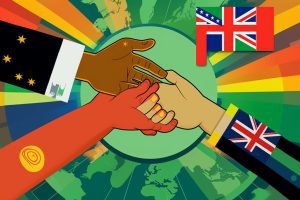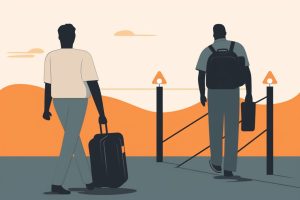The informal sector comprises a significant portion of the workforce in BRICS countries, with 62% of workers employed in this sector. However, the lack of formal training and education creates a skills gap and results in low productivity and work deficits. To promote decent work and reduce poverty, it is crucial to address this skills gap and incentivize a transition to formality.
At the second Employment Working Group (EWG) held in Port Alfred, South Africa, BRICS countries were encouraged to increase trade amongst themselves to promote economic growth within the bloc. ## Highlighting the Discrepancy in Trade
South Africa is facing a crucial decision regarding the R350 Social Relief Grant. The Second BRICS Working Group Meeting, held in Port Alfred, Eastern Cape, discussed the proposal to replace the grant with a Basic Income Grant (BIG). The urgency of implementing social protection measures was highlighted by Dr. Joni Musabayana, Director for Decent Work for Southern and Eastern Africa at the International Labour Organisation (ILO). With the ongoing COVID19 pandemic and the potential for future crises, integrating social protection measures has become vital.
A recent event brought together African Ministers and tourism leaders to discuss the opportunities and challenges facing the continent’s tourism sector. Minister Patricia De Lille of South Africa delivered an impassioned speech highlighting the potential of tourism as a catalyst for change and inclusive growth in Africa.
Access to the internet has become an integral part of our daily lives, connecting us to people from all over the world, providing us with the latest news, and facilitating business transactions. However, not everyone has equal access to the internet, particularly those in underserved communities. The high cost of data and unreliable internet connectivity are major obstacles that limit internet access for those living in these areas.





